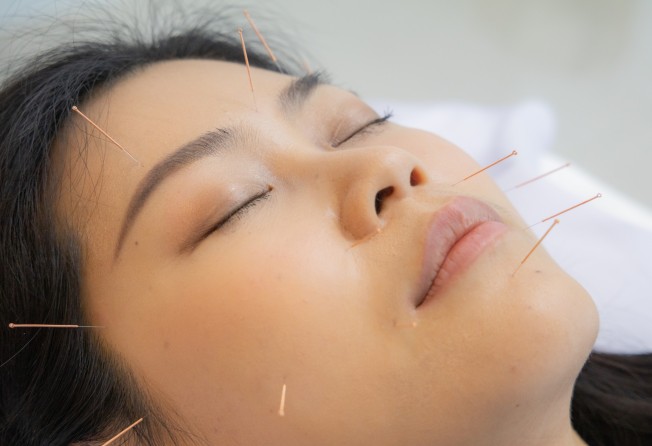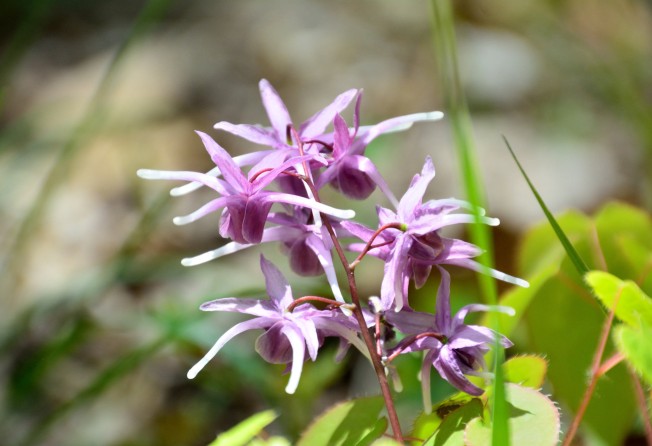
How traditional Chinese medicine treats sexual problems, from lack of desire to fertility issues to erectile dysfunction
- Chinese medicine targets three organs primarily responsible for sexual health concerns to get the qi flowing – and they aren’t the ones you might expect
- One of the greatest contributors to problems around sex is stress, which interferes with energy flow, practitioners say

Traditional Chinese medicine (TCM) has long been used to treat disorders and diseases, including those relating to sexual or reproductive health.
Extreme or chronic stress, frequent late nights, poor eating habits, eating foods that are too sweet or too salty, not drinking enough water, an overactive sexual lifestyle, and poor urination habits are among the causes of sexual disorders, says TCM doctor Gabriel Chan from Oak Health Chinese Medicine in Singapore.
TCM may help with a number of sexual health concerns.
In women, these include infertility issues as well as irregular and painful periods. In men, TCM is used to help with erectile dysfunction, decreased or low libido, infertility issues, premature ejaculation, and sexual anxiety.

In Chan’s experience, the three organs usually responsible for sexual health concerns are the digestive tract, liver and kidneys.
“Deficiencies in the digestive tract lead to lower nutrient absorption rates, which in turn cause a malnourishment of the other organs,” he says.
The organs most often affected by this are the liver and kidneys. When these organs are weakened, symptoms of sexual dysfunction may develop.
Liver stagnation, usually resulting from stress, is another common diagnosis, Chan says.
“Stress is thought to be a major contributor to many of the sexual health conditions we see today. Stress affects the liver, and when the liver qi [the body’s vital energy, according to TCM] is stagnated, blood circulation around the body becomes poor. This weakens the kidneys, giving rise to symptoms of sexual dysfunction. To alleviate the symptoms, we have to either strengthen the weak organs or clear the stagnation.”
Qi stagnation – though not always of the liver – has long played a central role in women’s illness in TCM, says Troy Sing, a TCM practitioner from Health Wise Chinese Medicine Consultancy in Hong Kong’s Central district. This was thought to be because of the unique emotional and sexual challenges women face.
For example, the ancient Chinese believed that women experienced greater sexual frustration because they were subject to different sexual norms than men and were not allowed to express themselves in the same way. Women were also believed to be more vulnerable to loneliness and depression, especially after they became widowed.

Ancient medicine practitioners, who understood the mind-body connection and its link to disease, looked at female sexual disorders and women’s emotional stress as being because of sexual frustration.
“But now, centuries later, we recognise that these issues were in part a consequence of the oppressive social conditions and not just biological,” says Sing.
It wasn’t until the Song dynasty (960-1279) that Chinese doctors developed a better understanding of women’s sexual health, and gynaecology found its place as a speciality in the Chinese medicine system.
TCM physicians address sexual health conditions in ways that include scalp and body acupuncture, cupping, and herbal medicine.
Acupuncture and cupping restore optimal function
Scalp acupuncture targets different parts of the brain to help heal the affected organs, says Chan. The brain is believed to be the body’s primary healing centre, and TCM doctors target specific acupoints in the scalp to deal with the problem, according to the diagnosis.
In body acupuncture, needles are applied to certain meridian points to target affected organs to help them function optimally again.
Sing says that many studies done over the last decade found acupuncture to be effective in patients with sexual disorders.

Findings from a recent meta-analysis published in 2021 in the Journal of Complementary and Integrative Medicine suggest that acupuncture improves male sexual dysfunction – particularly in relation to desire, libido, erectile dysfunction and impotency.
The literature showed that acupuncture was effective for reducing some female sexual dysfunction problems, also.
Acupuncture may therefore be suggested as a non-pharmaceutical alternative, but more research is needed, Sing says.
Cupping, says Chan, removes any stagnation of qi or “dampness” that may be present in the body, and improves blood circulation.

Herbal remedies to restore balance
Herbal medicine is used to help with almost all sexual health conditions, to restore balance to the organs and body.
One herb that’s said to improve sexual function is suo yang (Herba Cynomorii Songarici). According to Sing, it contains natural compounds like anthocyanins and tannins, and can help to treat impotence, premature ejaculation, and weak loins and knees.
Others are yin yang huo, also called horny goat weed, that “tonifies” (increases the energy) of the kidneys, and she chuang zi (Cnidium Monnieri), used for drying dampness and addressing itchiness in the genital area.

Self-care to safeguard fertility
Lifestyle practices also play an important role in sexual health.
The early Chinese believed that one’s body is inherited from, and given by, one’s ancestors, Sing explains. Taking care of the body and its physical functions, or nurturing life (yang sheng), was a sign of respect for one’s parents. A healthy body was a fertile one, and the more offspring a person had, the stronger their clan and the better the family’s fortune.
According to passages in the Huangdi Neijing Suwen (the highest authority on TCM and part of the Inner Canon of the Yellow Emperor, an ancient Chinese medical text), the ancient Chinese also believed that sexual capacity is inherited from the ancestors.
“They strongly associated sexual potency and child-bearing capacity with human life-preserving forces,” Sing adds. That’s why they stressed that maintaining a healthy body entailed taking care of the reproductive organs, also – “by way of exercise, diet, and abstinence from any excessive and unrestrained behaviour”.